Delmy Hernández Finca Cascaritas, three plots:Chupadero 1, Chupadero 2, Los Laureles
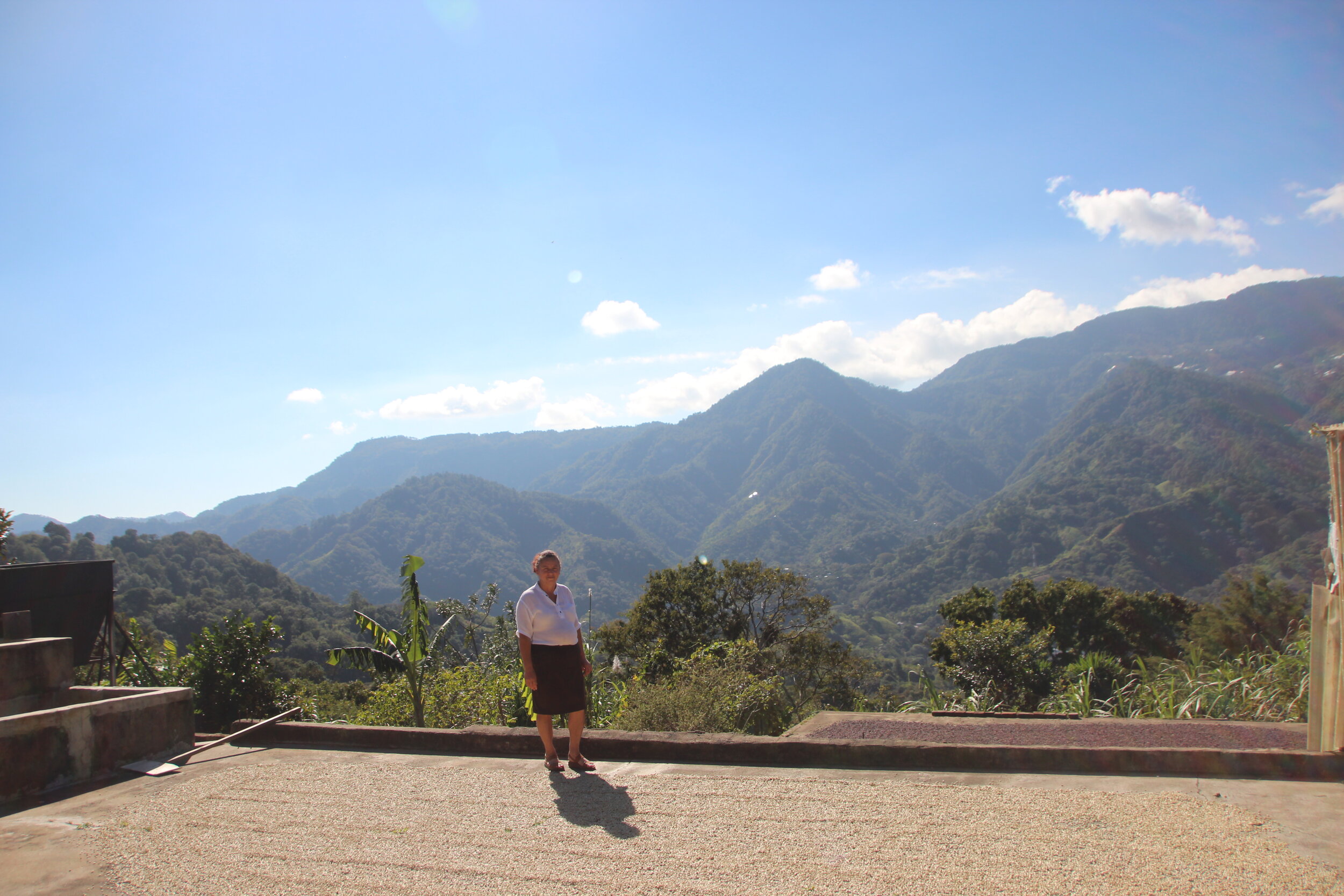
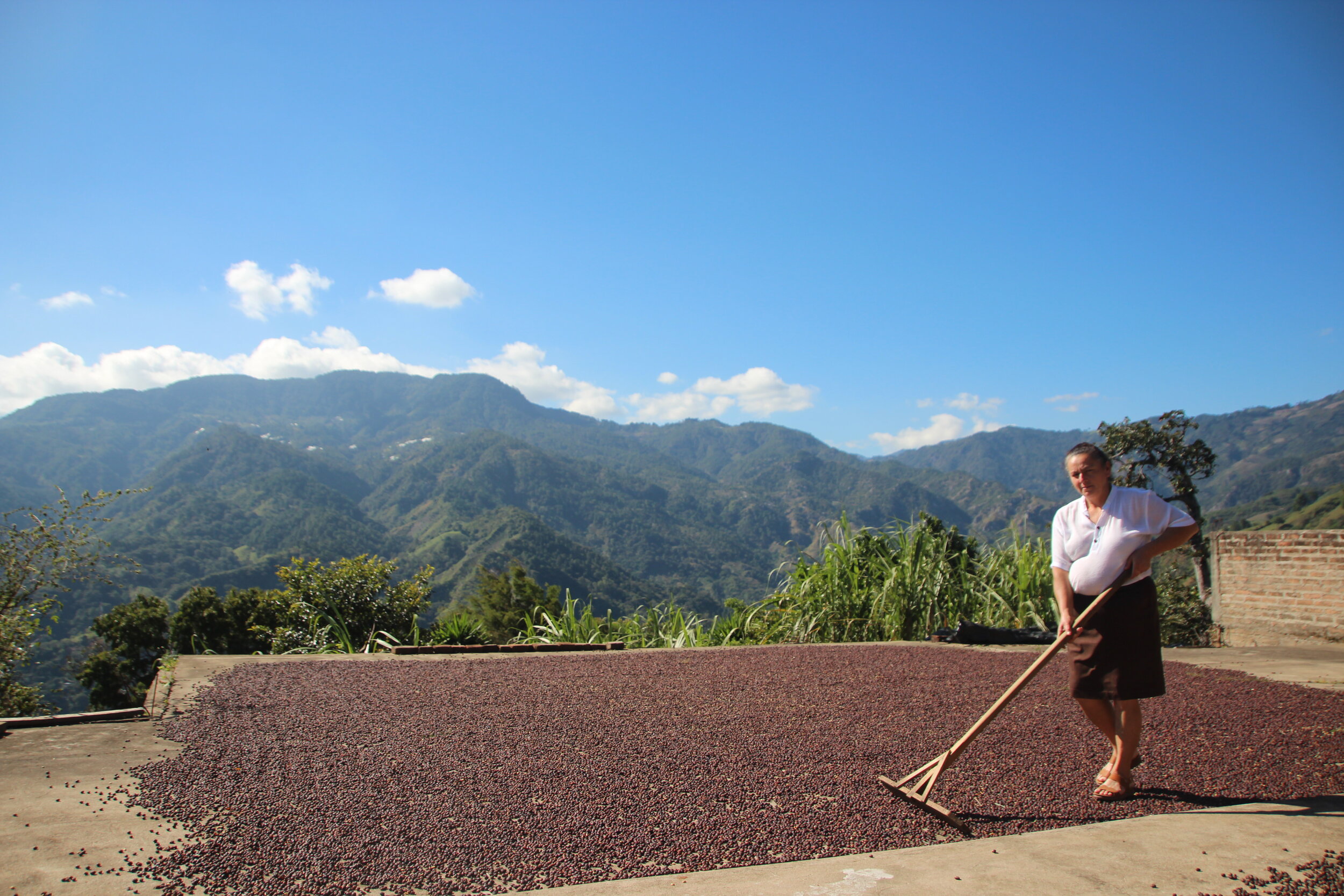
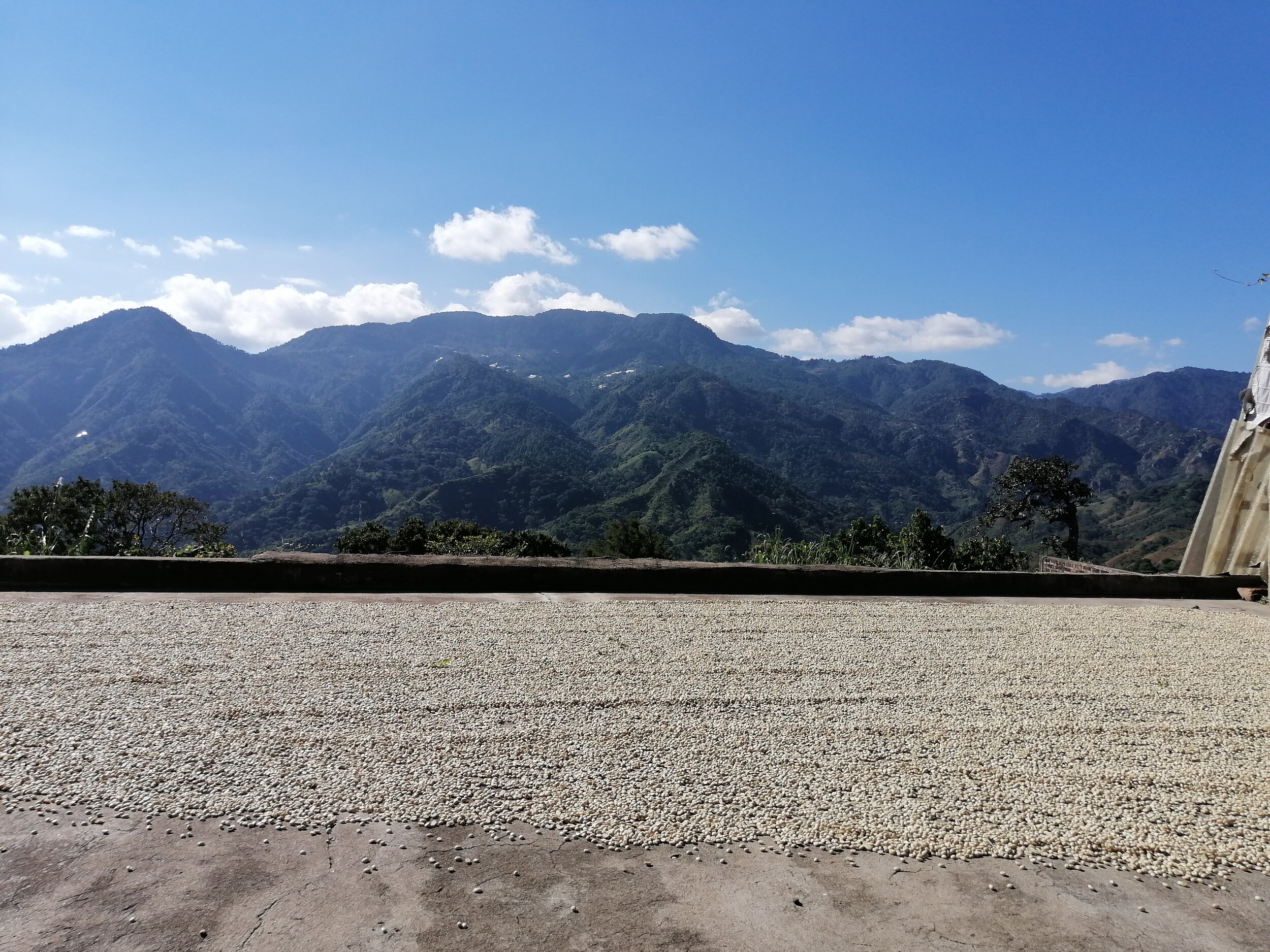
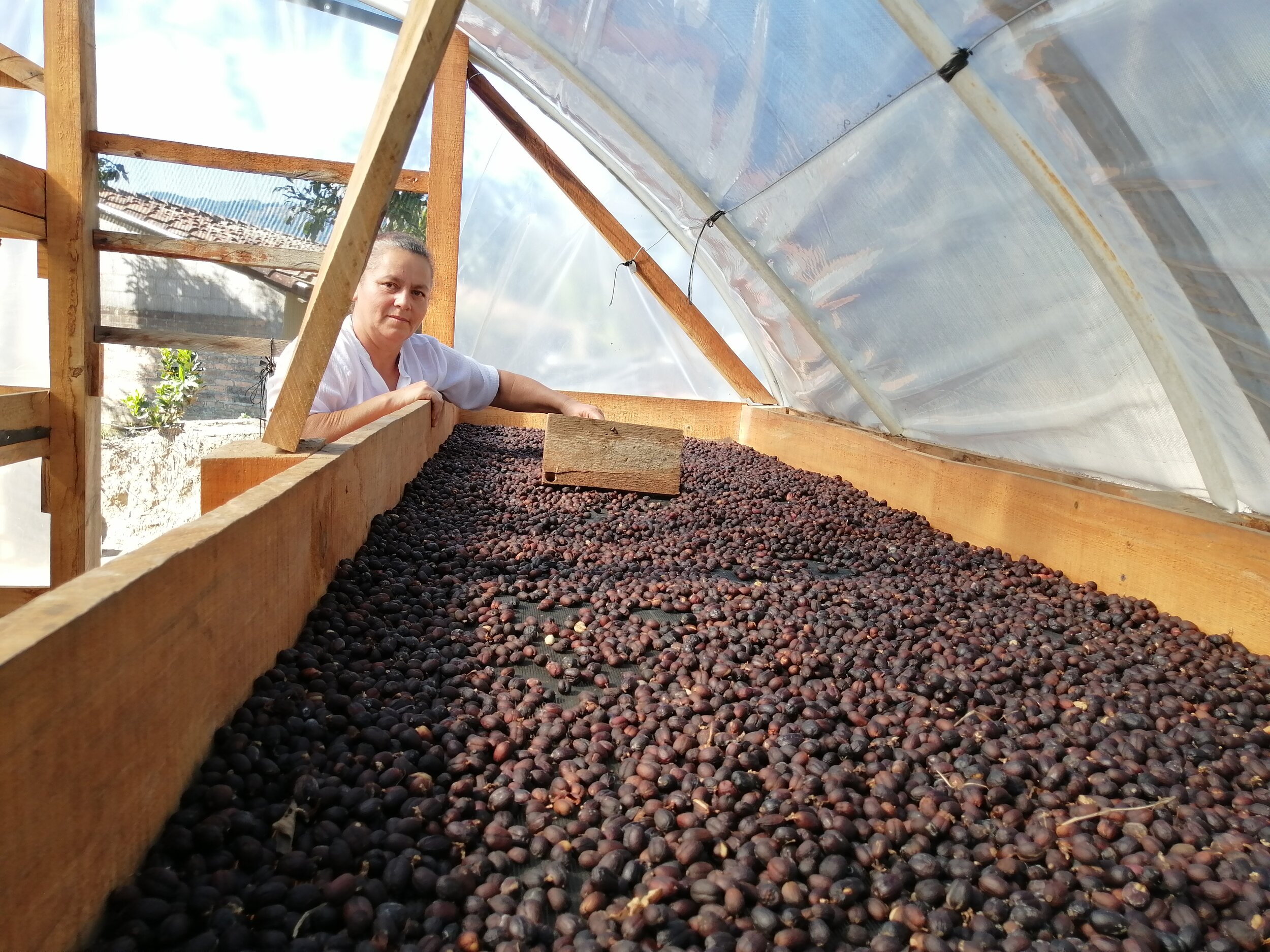
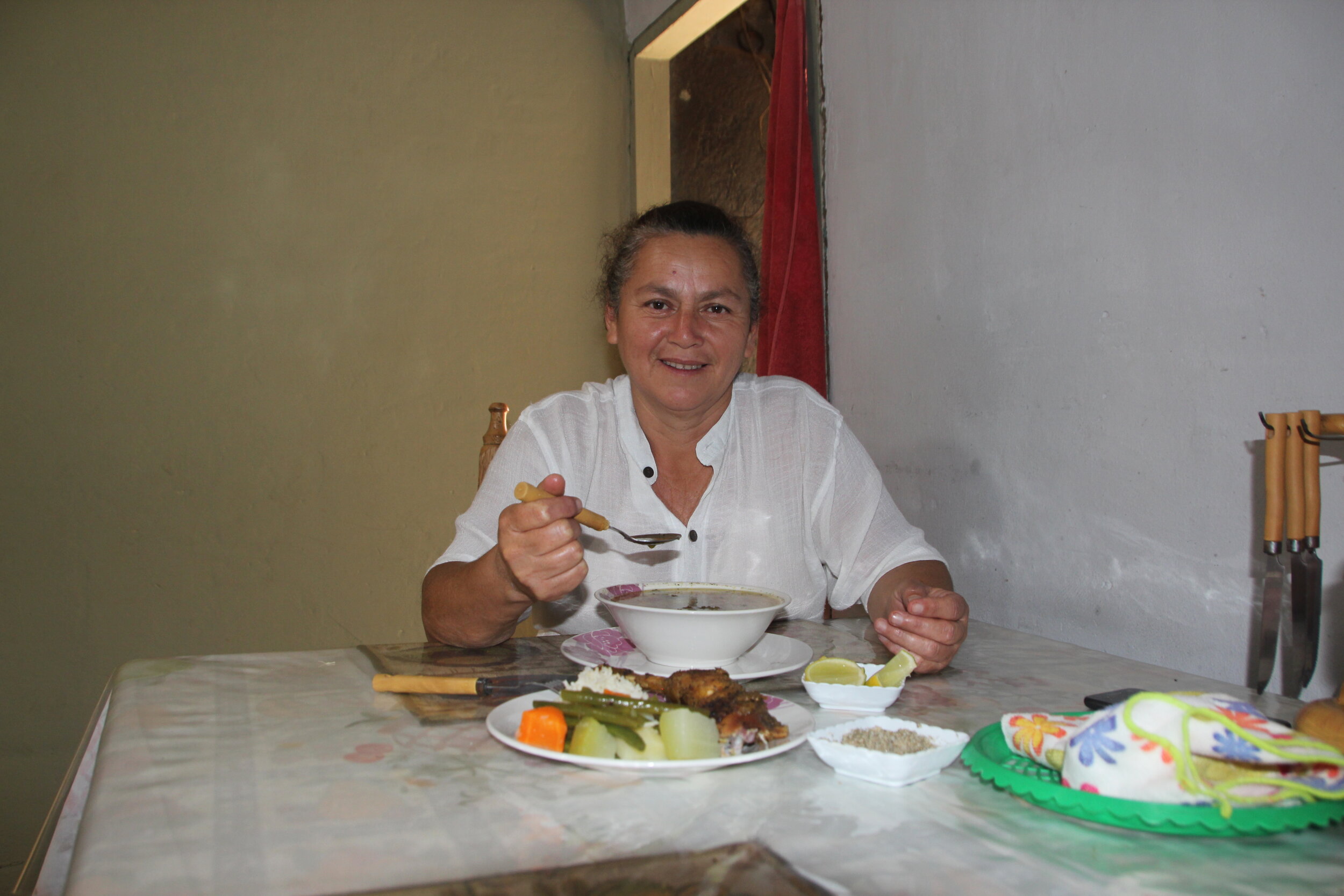
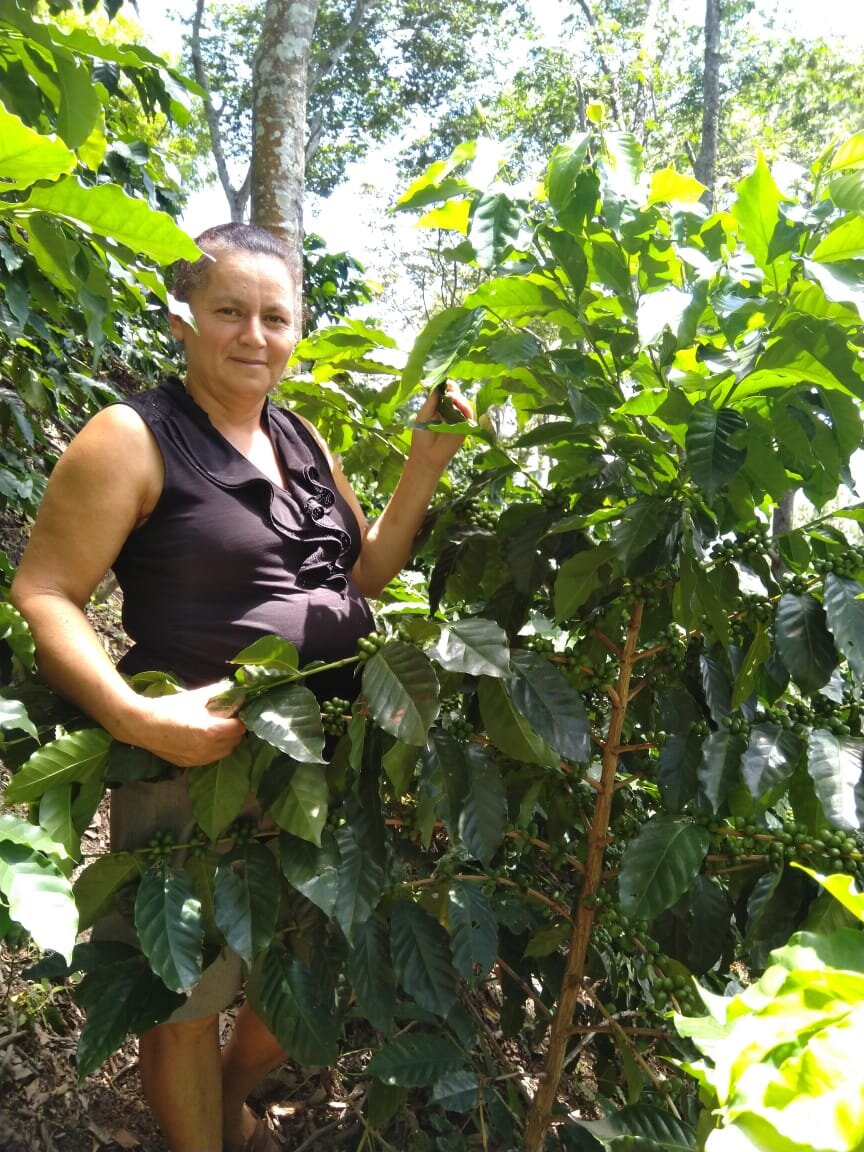
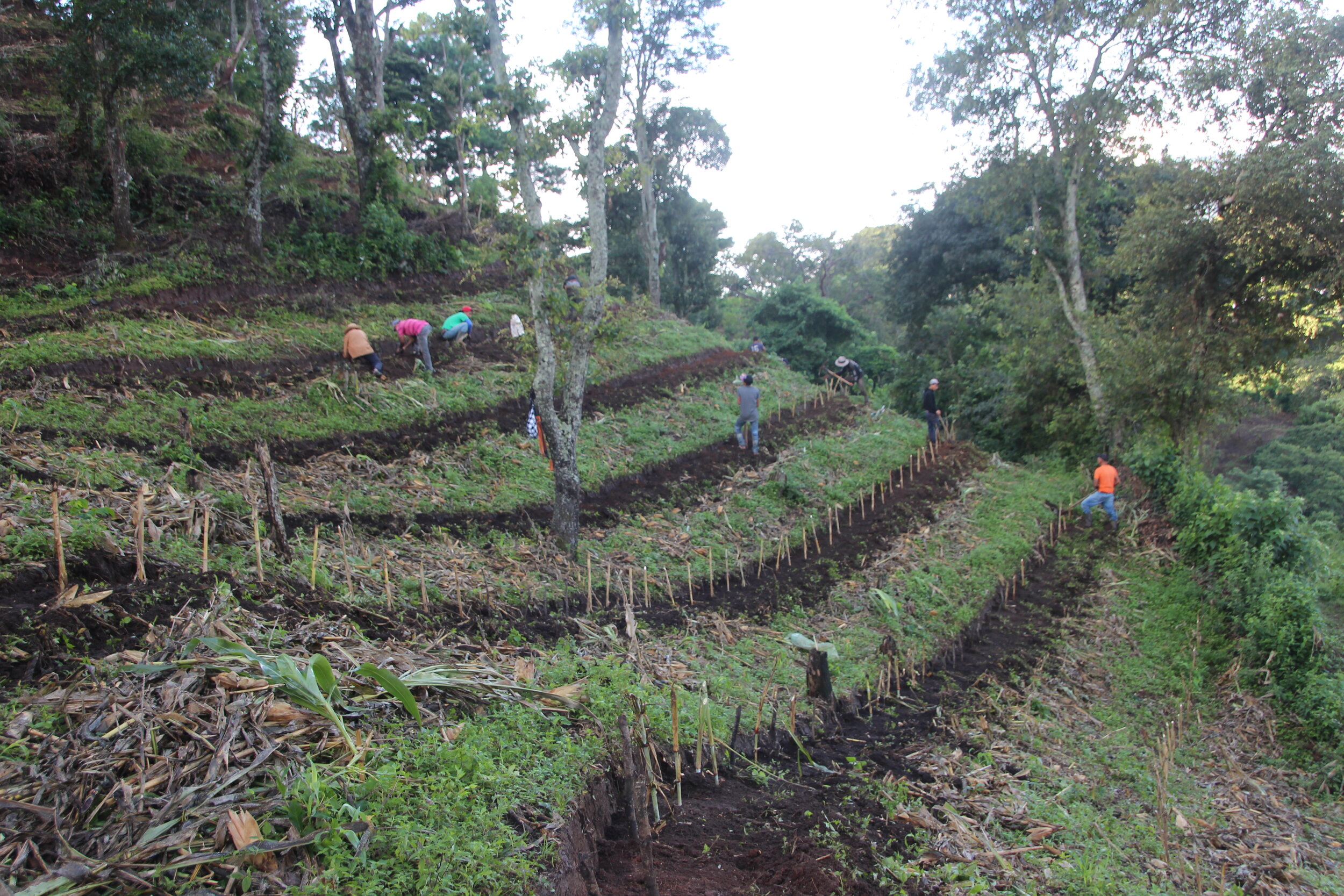
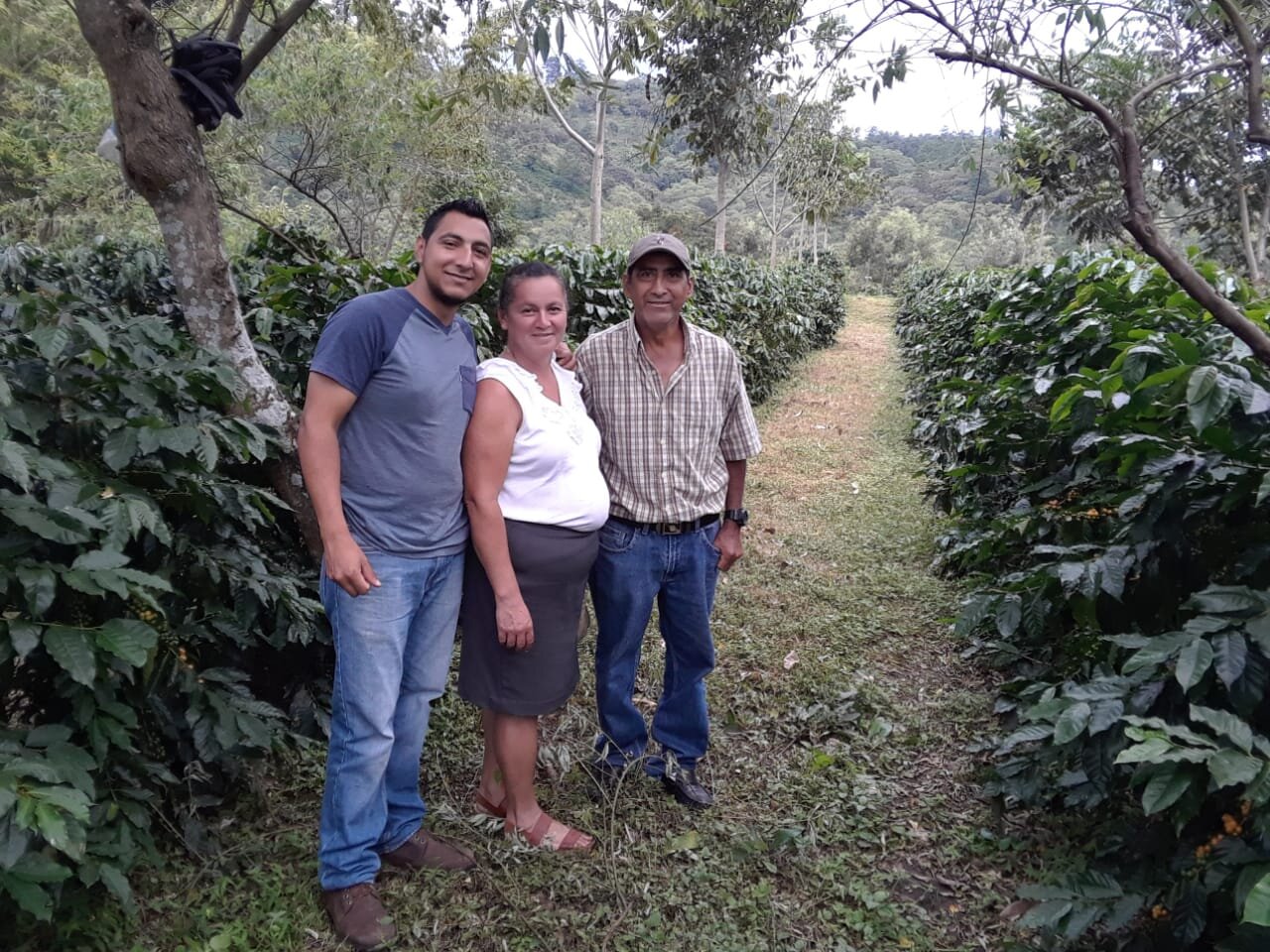
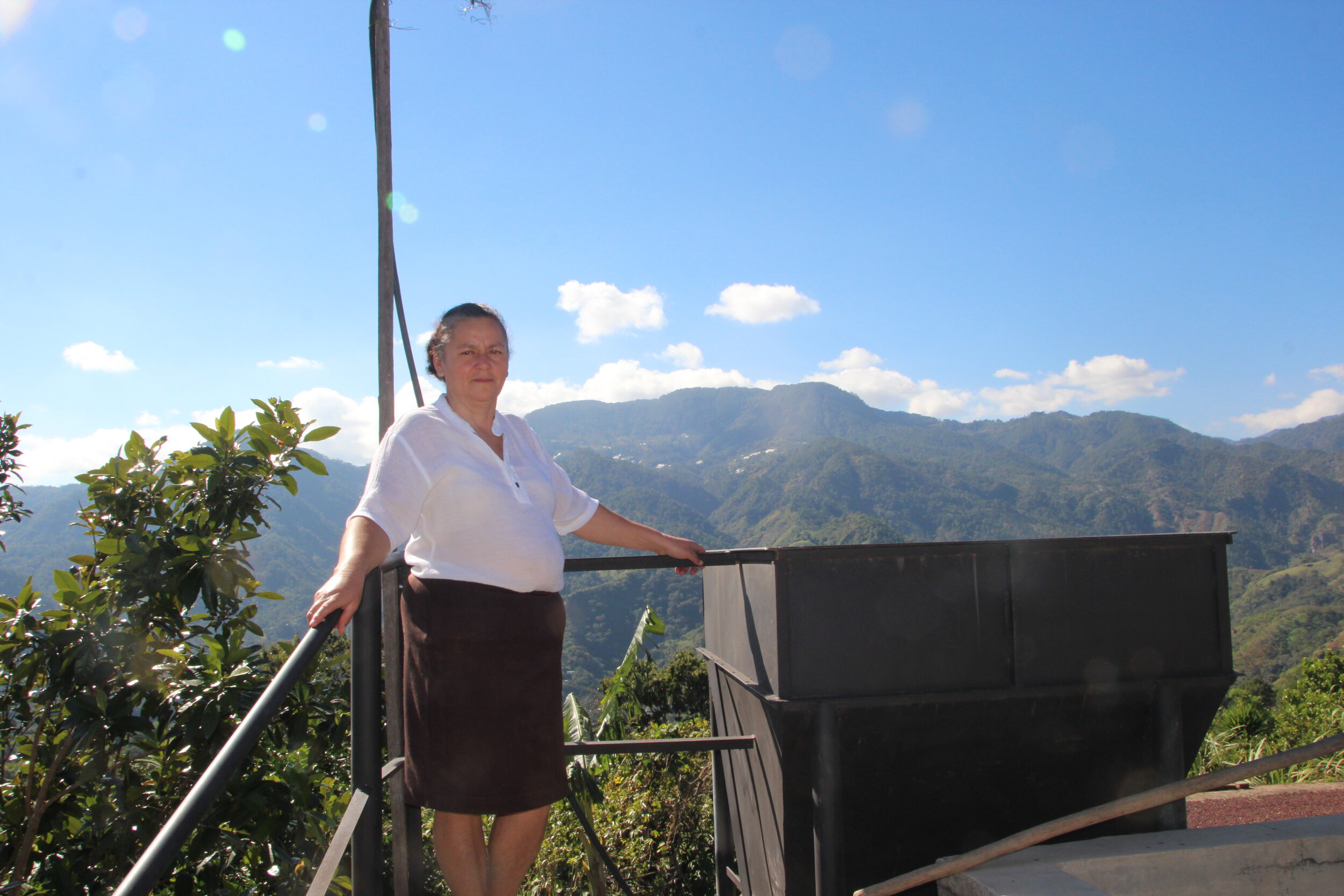
Not so long ago, my husband died. It was a devastating blow to my life and that of my sons;
He was the pillar of our family, the one I naturally leant on in times of distress to seek refuge. After decades of sharing every day with him, sorrow and joy, he was gone.
But we are strong, my sons and I. Also, we are third and fourth generation coffee farmers, and my husband had instilled all his know-how and expertise on our sons long before he passed away.
My own skills have evolved and expanded a lot over the years. When I was a little girl, I had to de-pulp coffee by hand. It was arduous labor, but we had no machine and could in no way afford to hire someone. Fortunately, I only had to work during weekends and holidays, but when I graduated from elementary school, I started working full-time.
Now, we use a variety of techniques and skills to grow and then process high quality beans, and have started to offer micro-lots in 2015. My son Hidardo oversees much of our production, but I have specialized in drying and preparing quite a few micro-lots around our home simultaneously, from late November until March. We have a great patio where I can dry our coffees in the sun. But we also built a sturdy solar dryer with three layers of African beds, in which we can process our lots in a very controlled, slow way.
I’m especially keen on working with carbonic maceration. It leaves room for quirky experiments, and the profiles are often more exotic and memorable, although it is also somewhat riskier because I cannot entirely control the fermentation process. So, usually I will opt for 60% washed and 40% natural and honey processes for our larger micro-lots, and then do smaller anaerobic lots on the side.
We have a growing group of partner roasters in different parts of the world. This allows us to reinvest proceeds in our land and in our facilities, which in turn means we can increase production and further improve quality. What once started as a humble project growing basic beans, is now slowly turning into a thriving, well focused and more diversified family business.
So, while our husband and father will never again walk our land, we are united in our determination and joy to continue to build his legacy.
Farm facts
Always when we can afford it, we reinvest the proceeds from our coffee crop in the purchase of new land, or other aspects of our business.
Nowadays, we own 3,5 hectares at an altitude of 1230 to 1300 meters.
We work with Parainema, Catucai, Amarello 2SL, IHCAFE90, Obata.
Apart from pine trees that are naturally predominant in our region, we have also planted additional trees to generate sufficient shadow on all parts of the plantation. There are banana trees, American walnut trees, hazel pine, guamo and malcinca.
Our coffees are FTO.
This farm is Rain Forest Alliance certified.
